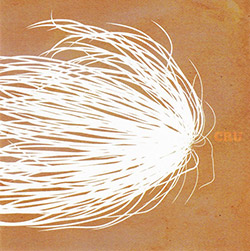
A composite of environmental sounds, electronics, and viola, recorded in Barcelona, Spain and Lisbon, Portugal from intrepid audio explorers Ferran Fages and Ernesto Rodrigues, the single long work taking the listener on a theoretical journey of transparent traffic, squealing wheels and indeterminate location, engrossing in its detail and the mystery it presents.
In Stock
Quantity in Basket: None
Log In to use our Wish List
Shipping Weight: 5.00 units
EU & UK Customers:
Discogs.com can handle your VAT payments
So please order through Discogs
Sample The Album:
Ferran Fages-electronics
Ernesto Rodrigues-viola
Click an artist name above to see in-stock items for that artist.
Label: Creative Sources
Catalog ID: cs272
Squidco Product Code: 24294
Format: CD
Condition: New
Released: 2014
Country: Portugal
Packaging: Jewel Case
Recorded in Barcelona 2013 and Lisbon 2014.
"Now this is a curious one, likely to be overlooked and possibly misunderstood if not paid proper attention to. Cru is another release involving Ernesto Rodrigues on his incredibly prolific Creative Sources label, one of five to include the violist in the most recent batch alone. I have yet to listen to them all but the inclusion of Ferran Fages' electronics on this duo disc helped Cru to the top of the listening pile, and I am very pleased it did so.
At first this release sounds like a particularly lovely recording of the two musicians performing outdoors, in an urban setting, playing quietly and sparsely, allowing their sounds to blend into the independently occurring environment around them. For the first couple of listens I assumed that that was what I was hearing, and spent time trying to picture the precise surroundings the musicians set themselves amongst as vehicles of various sizes (and I think more than one train) seem to pass by at differing distances.
Although the environmental sounds really take the foreground here I was troubled by the way that it was difficult to fix a definite image in my head that encompassed everything to be heard. Exploring the minimal sleeve notes before a third listen then revealed that although we are only presented with the one track here, it was recorded both in Fages' home city of Barcelona in 2013, and Rodrigues' home of Lisbon the following year. Clearly then what we hear is some kind of splicing together of two recordings.
In late November I saw Ferran briefly and he confirmed to me that (for this release at least) he had not met up with Rodrigues. So rather than being two duo recordings in two cities spliced together, clearly Cru is made up of two solo recordings overlaid on one another. What I didn't have time to ask Ferran are any more details beyond this, but that's where the fun lies anyway, relying on your ears to figure things out. How did this recording come about? Did one of the two musicians record themselves outside, and the second then played into and over the result? Were both musicians outside? We know that one recording was made months before the other, but did the second musician respond directly to the first recording, or did they merely make a similar recording of the same length so the two could be juxtaposed?
Its hard to pin down answers to these questions. Certainly, listening closely, it does feel like one of the musicians is responding to the other. There are long silences, or rather, environmental interludes when the musicians make no sound, only for both musicians to start playing together in roughly the same time brackets. This suggests that one of the pair played along with the first recording. If this did happen then I will guess that Rodrigues took the secondary role as the way the electronics seem to take the lead more often than not. Were they both outside? Were any of the musicians outside? Perhaps both musicians played into a separate field recording. The options are endless and no amount of close listening really reveals anything that gives the game completely away.
What we do know is that the end result is a quite beautiful, if vaguely distant and hard to connect to recording. The sounds both musicians make are subtle, often very quiet, often hiding amongst the grey hum of traffic, the blur of the city. Ages' electronics are of the elemental, feedback end of things, gentle whistles, tightly controlled screeches. Rodrigues' viola sounds aren't a million miles away, again suggesting he played along to Fages' lead, focussing on brief high pitched tones and textural scrapes. Its all very tentative however, and fragile in form, as the instrumental sounds often slip away from earshot into the background detritus, or pitch themselves so close that it shard to tell them apart in the first place.
Cru is a very delicate, beautiful and yet resolutely mysterious work. The long silences give the music a feeling of fracture, of decentred imbalance, as the recording environment seems to take precedence over the musicians' contributions, a feeling of distance and thinking too hard about how it is all put together only makes it all feel stranger still. Its a fascinating and rewarding listen though, and one I recommend you don't let slip past unnoticed."-Richard Pinnell, The Watchful Ear
Artist Biographies
• Show Bio for Ferran Fages "Ferran Fages (1974, Barcelona, Catalunya) Ferran Fages is an improviser and composer, and an international reference in the sphere of electroacoustic improvisation. Since the end of the 1990s, he has published over fifty discographic references on national and international labels. He has undertaken tours, performed concerts and led workshops around Europe and South America as well as in Canada and Japan. He plays guitar, resonant objects, acoustic turntable and electronics: "feedback mixing board", pick-ups and oscillators. From 1999 until 2006 he was a member of the IBA col·lectiu d'improvisació, with whom he organised over one hundred concerts as well as the festivals Improvisa (2000-2003) and the Experimental Music Week at Metrònom (2005), among others. Besides his projects, he has shared a stage and made collaborations with musicians such as Christine Abdelnour, Sophie Agnel, Núria Andorrà, Derek Bailey, Pascal Battus, Tom Chant, David Chiesa, Albert Cirera, Sébastien Cirotteau, Angharad Davies, Rhodri Davies, Michel Doneda, Axel Dörner, Lluïsa Espigolé, Agustí Fernández, Jean-Philippe Gross, Will Guthrie, Robin Hayward, Barbara Held, Jason Kahn, Martin Küchen,Eduard Márquez, Wade Matthews, Mattin, Manuel Mota, Ivan Palacky, Ramon Prats, Eddie Prévost, Pablo Rega, Àlex Reviriego, Ernesto Rodrigues, Alejandro Rojas-Marcos, Ivo Sans, Joan Saura, Pilar Subirà, Vasco Trilla, Birgit Ulher, Taku Unami, Nikos Velliotis, Dafne Vicente-Sandoval, Mark Wastell, Christopher Williams and Ingar Zach among others. He has also worked with the choreographers and companies of Olga Mesa (1999), Lanónima Imperial (2003-2004), Carme Torrent (1999-2005), Ktonycia (2007), Constanza Brncic (2008-2009) and Merce Cunningham Dance Company (2009). He has performed the following pieces of contemporary music: Guitar two, for four, by Phill Niblock (2004); Cobra, by John Zorn (2006); Meditations for Orchestra, by Pauline Oliveiros (2007); Guitar Trio, by Rysh Chatham (2007); Trio I from Trios WHITE ON WHITE, by Robert Ashley (2008); Poem 1960, by La Monte Young (2008); Diferencias familiares sobre las cuerdas, by Christopher Williams (2009); Little by Little, by Sam Sfirri (2011), and Cartridge Music, by John Cage (2012)." ^ Hide Bio for Ferran Fages • Show Bio for Ernesto Rodrigues "He has been playing the violin for 30 years and in that time has played all genres of music ranging from contemporary music to free jazz and improvised music, live and in the studio. His main interest shifted towards contemporary improvised and composed music. The relationship with his instruments is focused in sonic and textural elements. Electronic music was an early influence on his approach to violin playing, which challenges traditional romantic concepts of the violin/viola through use of preparations and micro tuning. Active in different settings on the Portuguese scene for free improvised music, both as a collaborator and in leading his own groups. Music for Dance, Cinema, Video and Performance. Has created the record label Creative Sources Recordings in 1999, which mainly concentrates on releasing experimental and electro-acoustic music." ^ Hide Bio for Ernesto Rodrigues
11/18/2024
Have a better biography or biography source? Please Contact Us so that we can update this biography.
11/18/2024
Have a better biography or biography source? Please Contact Us so that we can update this biography.
Track Listing:
1. Cru 37:07
Creative Sources
Improvised Music
Free Improvisation
Electro-Acoustic
Electro-Acoustic Improv
Electronic Forms
Field Recordings
Stringed Instruments
Duo Recordings
European Improvisation, Composition and Experimental Forms
lowercase, reductionist, micro-improv, sound improv, onkyo sound
Search for other titles on the label:
Creative Sources.


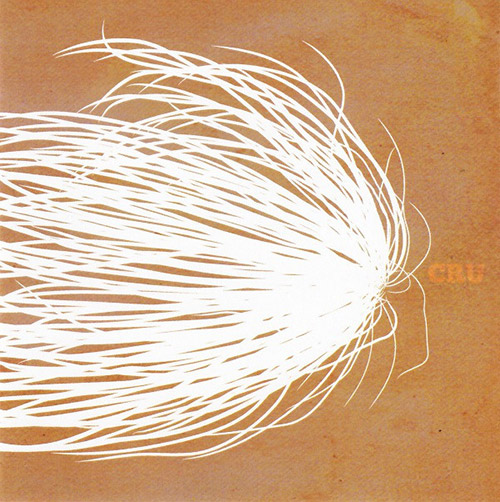
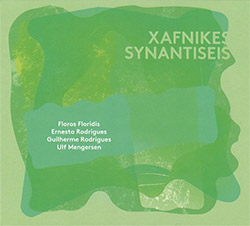
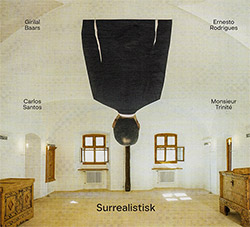
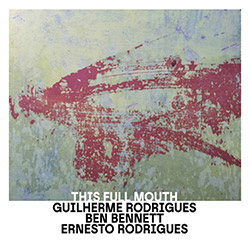
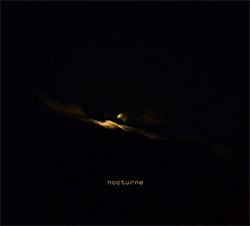


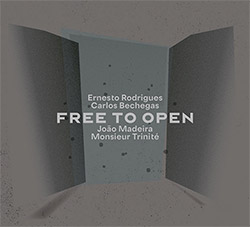
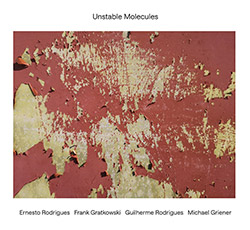



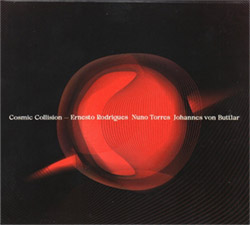



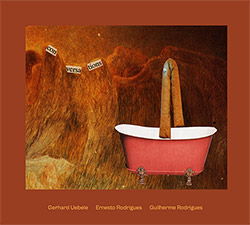


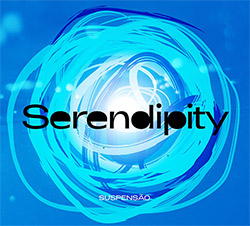
















![Barker / Parker / Irabagon: Bakunawa [VINYL]](https://www.teuthida.com/productImages/misc4/35533.jpg)
![Blaser, Samuel / Marc Ducret / Peter Bruun: Dark Was The Night, Cold Was The Ground [VINYL 10-inch]](https://www.teuthida.com/productImages/misc4/35492.jpg)









![Warren, Kenny (Warren / Hoffman / Ellman): Sweet World [VINYL]](https://www.teuthida.com/productImages/misc4/35451.jpg)


![Blake, Ran / Dave Knife Fabris: Live Amsterdam 2006, First Visit [CD + POSTCARDS]](https://www.teuthida.com/productImages/misc4/35275.jpg)
![Sanna, Claudio: Compositori Sardi Contemporanei II [2 CDs]](https://www.teuthida.com/productImages/misc4/35317.jpg)











![Nevai, Nandor: <<The PRICE of FRONTIER>> Book 1: FULK [BOOK + 4 CDs]](https://www.teuthida.com/productImages/misc4/35464.jpg)
![Nevai, Nandor: <<The PRICE of FRONTIER>> Book 2: MARTIAL [BOOK + 4 CDs]](https://www.teuthida.com/productImages/misc4/35465.jpg)
![Nevai, Nandor: <<The PRICE of FRONTIER>> Book 3: JASSOM [BOOK + 4 CDs]](https://www.teuthida.com/productImages/misc4/35466.jpg)
![Nevai, Nandor: <<The PRICE of FRONTIER>> Book 4: HARD-WON [BOOK + 4 CDs]](https://www.teuthida.com/productImages/misc4/35467.jpg)





![DNS: Taking Big Bites Of The Khandas Three Cafes Deep [2 CDs]](https://www.teuthida.com/productImages/misc4/35334.jpg)




![Cleaver, Gerald: The Process [VINYL]](https://www.teuthida.com/productImages/misc4/34966.jpg)




![Alva Noto: HYbr:ID II [VINYL 2 LPs]](https://www.teuthida.com/productImages/misc4/35201.jpg)

![Baron, Derek / Luke Martin: Distinct and Concealed [CASSETTE + DOWNLOAD]](https://www.teuthida.com/productImages/misc4/35079.jpg)

![Lyle, Erica Dawn : Colonial Motels [CASSETTE + DOWNLOAD]](https://www.teuthida.com/productImages/misc4/35080.jpg)







![Alva Noto: HYbr:ID III [VINYL 2 LPs]](https://www.teuthida.com/productImages/misc4/35011.jpg)
![Kubisch, Christina / Trondheim Voices: Stromsanger 2022 For Six Voices And Electromagnetic Waves [VINYL]](https://www.teuthida.com/productImages/misc4/34628.jpg)








![Zurria, Manuel: Fame di Vento [3 CDs]](https://www.teuthida.com/productImages/misc4/35167.jpg)

![Granberg, Magnus / Nattens Inbrott / Skogen: Holde Traume, Kehret Wieder! [2 CDs]](https://www.teuthida.com/productImages/misc4/35038.jpg)
![Frey, Jurg: Outermost Melodie [2 CDs]](https://www.teuthida.com/productImages/misc4/35039.jpg)

![Pavone, Jessica: Reverse Bloom [VINYL]](https://www.teuthida.com/productImages/misc4/34895.jpg)




![Modney (Modney / Wooley / Gentile / Roberts / Pluta / Symthe / ...): Ascending Primes [2 CDs]](https://www.teuthida.com/productImages/misc4/34852.jpg)








![Elephant9 with Terje Rypdal: Catching Fire [VINYL 2 LPs]](https://www.teuthida.com/productImages/misc4/35355.jpg)
![Deerlady (Obomsawin, Mali / Magdalena Abrego): Greatest Hits [VINYL]](https://www.teuthida.com/productImages/misc4/34876.jpg)




![Haino, Keiji: Black Blues [2 CDs]](https://www.teuthida.com/productImages/misc4/35109.jpg)



![Surplus 1980: Illusion of Consistency [CD]](https://www.teuthida.com/productImages/misc4/35069.jpg)
![Staiano, Moe: Away Towards the Light [VINYL + DOWNLOAD]](https://www.teuthida.com/productImages/misc4/35037.jpg)




![Caveira (Gomes / Sousa / Abras / Ferrandini): Ficar Vivo [VINYL]](https://www.teuthida.com/productImages/misc4/34643.jpg)
![Gregg, J. J. / David Van Auken: Lunar Prairie [CD w/ DOWNLOAD]](https://www.teuthida.com/productImages/misc4/34611.jpg)

![Coultrain: Mundus [VINYL]](https://www.teuthida.com/productImages/misc4/32439.jpg)
![Mattin: Songbook #6 [VINYL]](https://www.teuthida.com/productImages/misc4/27317.jpg)
![Punkappella: Wake Up [7-inch VINYL]](https://www.teuthida.com/productImages/misc4/17519.jpg)
![Residents, The: WARNING: UNiNC.: Live And Experimental Recordings 1971-1972 [VINYL 2 LPs]](https://www.teuthida.com/productImages/misc4/31521.jpg)
![Coultrain: Phantasmagoria [VINYL]](https://www.teuthida.com/productImages/misc4/30142.jpg)
![Lennon, Sean Ono: Asterisms [VINYL]](https://www.teuthida.com/productImages/misc4/34517.jpg)

![Rotem Geffen: The Night Is The Night [VINYL]](https://www.teuthida.com/productImages/misc4/34631.jpg)
![Coley, Byron: Dating Tips for Touring Bands [VINYL]](https://www.teuthida.com/productImages/misc4/17906.jpg)

![Lost Kisses: My Life is Sad & Funny [DVD]](https://www.teuthida.com/productImages/misc4/lostKissesDVD.jpg)